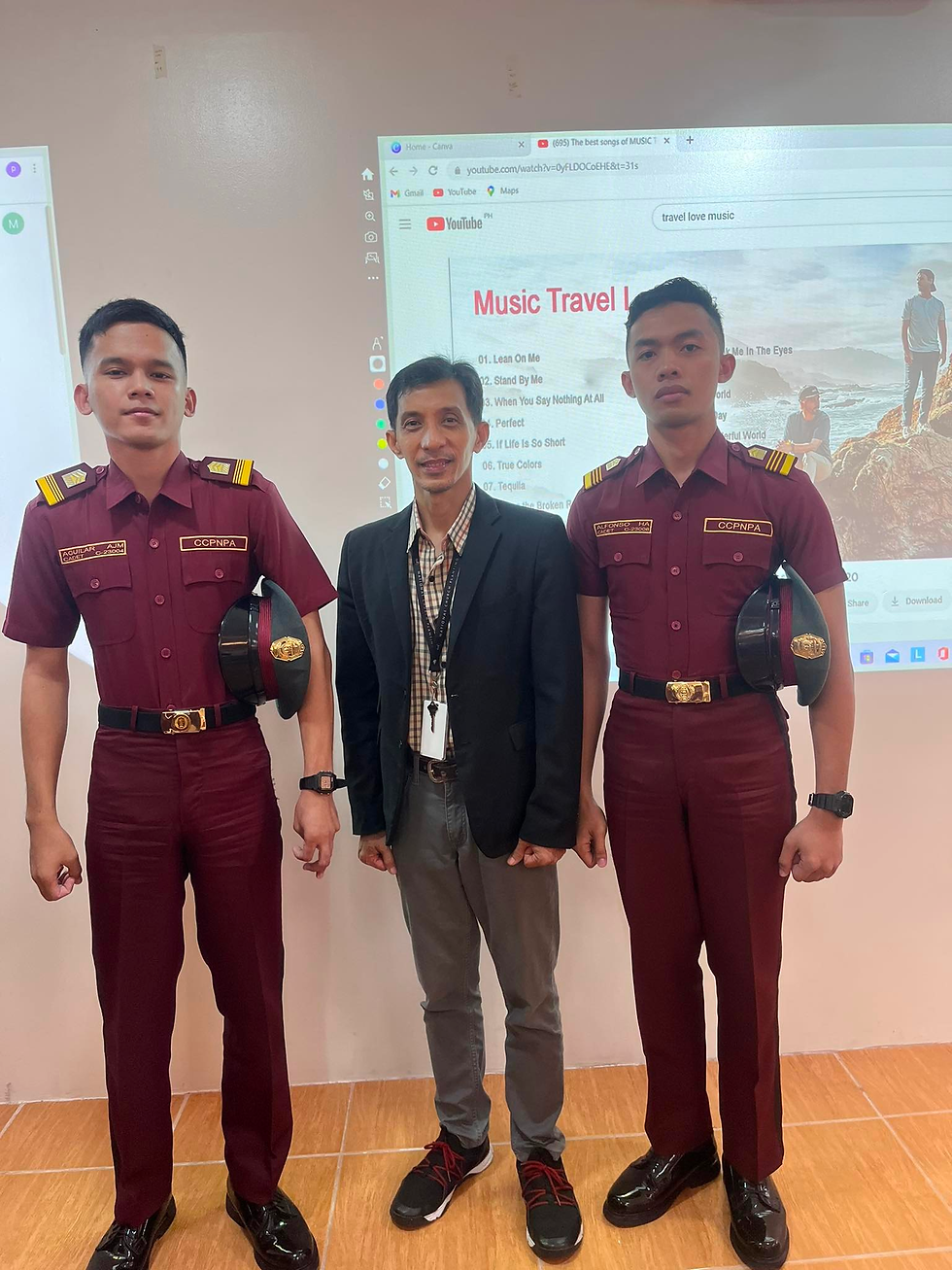ELP with Mr. Gambala (2nd meeting)
- Aidan Joshua Aguilar
.jpg/v1/fill/w_320,h_320/file.jpg)
- Jan 26, 2023
- 3 min read
Updated: Feb 13, 2023

The key to successful leadership is influence, not authority. — Kenneth H. Blanchard
Former Captain Gerardo Gambala led a second session of the enhanced learning program for the PNPA's first-class cadets to continue teaching us and expand our knowledge from what he had taught us in the first session. What he taught us was an extension of his first lesson—the moral compass or true north—which was what we had previously heard. What we had was the continuation of his first lesson, which is the moral compass or true north. It is the ability to make decisions that tell society about your values or principles of what is essential in life.[1] It is constructed from your hardships, trials, and experiences. When your moral compass is headed true north, you'll notice that you are on the right path to making your decisions.[2] By knowing what is good and evil, right and wrong, and putting morality at all costs, we create a clearer vision of where our direction is headed, the right path. Thus, this will guide us to become excellent and effective future public officers.
"If the leader is good, everybody wins." It's true for the leader who motivates his followers to achieve predetermined goals. For someone who had served the Philippines for more than a decade, Former Captain Gerardo Gambala has a lot to share with us that comprises leadership. As a leader, we must be responsible enough for every action we do because we are accountable. Leadership can be interpreted as a framework showing a cycle, implying that leadership is a process and dynamic first, as a leader must have a purpose to accomplish the mission. Second, a leader is good if he always thinks of the welfare of his people. Lastly, a leader must act in authority to influence his men so they have a clearer vision of where he is headed. Indeed, it is true that experience is the best teacher; however, evaluated experience is much better, for you can learn from the experiences of others.
A leader knows the way, goes the way, and leads the way.[3] It is hard to be a leader, but it takes guts to be responsible enough to make yourself accountable to act on it. The ingredients for being a leader are purpose, process, and passion. As a key figure or a public officer in the making, you must have already set your goals and made them happen. Along the journey of developing yourself as a good and efficient public officer, you are honing yourself to be competent and eligible as a leader by seeking improvements by learning and studying. You are in the process of making a reputation for your name. Last but not least, and the most important ingredient is having passion, a future public leader tends to be resilient when encountering obstacles if he has enthusiasm for what he does. A future public key figure passionate about becoming a leader to his people, rather than just for the benefits of having the money or such, have a more positive outlook and can overcome any difficulties in life.
______________
[1] Brown, S. (2017, January 15). 5 Reasons to Engage Employees in Decision Making. HRZone. https://www.hrzone.com/community/blogs/sashag/5-reasons-to-engage-employees-in-decision-making
[2] Set Your Moral Compass True North. (n.d.). Ethics Sage. https://www.ethicssage.com/2018/06/set-your-moral-compass-true-north.html
[3] Vision. (2014, January 17). John Maxwell. https://www.johnmaxwell.com/blog/category/vision/









Comments